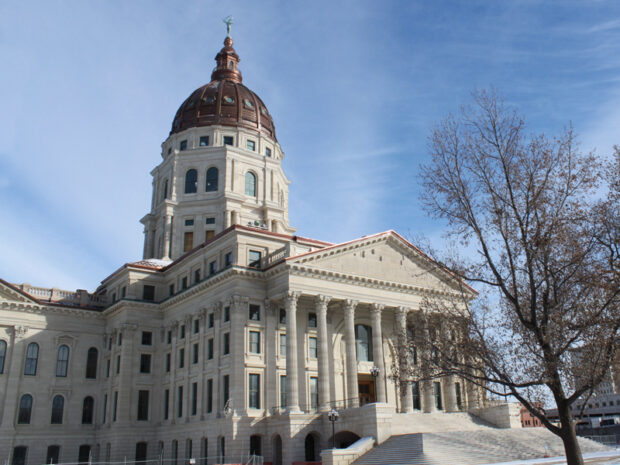HOME | ABOUT US | MEDIA KIT | CONTACT US | INQUIRE
HOME | ABOUT US | MEDIA KIT | CONTACT US | INQUIRE

Gov. Laura Kelly has vetoed a major tax cut package that would restructure tax rates for Kansans.
Posted May 17, 2024
Gov. Laura Kelly has vetoed a bipartisan tax cut package from Kansas state legislators following her promise to call a special session if lawmakers didn’t pass a plan she would sign. She kept her promise.
“I recognize that Kansans desperately need tax relief. I will be working with legislative leaders to come to a compromise, forging a bipartisan tax cuts plan that will responsibly provide tax relief for all Kansans without threatening our state’s future fiscal stability,” Kelly said. “Next week, I will be announcing the date of a special legislative session so we can deliver comprehensive, sustainable tax cuts. If we all work together, an affordable, bipartisan tax plan can be passed in less than a day.”
On Thursday, Kelly vetoed Senate Bill 37 which would exempt all social security benefits from Kansas income tax as well as establish a 0% state rate for sales and use taxes for food and food ingredients on July 1.
In Kansas, tax rates are structured into three thresholds. Income under $15,000 is 3.1%, income between $15,000 and $30,000 is 5.25% and income above $30,000 is 5.7%. Rates are doubled for couples.
Senate Bill 37 would restructure rates in two categories. Income not over $23,000 is 5.2% and income exceeding $23,000 would be taxed at 5.57%. The threshold would be $46,000 for couples.
The governor said she would want to keep a three-tiered structure, however, she wants the tax rates reduced to 3%, 5.2% and 5.65%.
Since the beginning of the year, Kelly has warned legislators she would call upon a special session if they failed to provide a “fiscally responsible” tax cut plan.
“Instead, they played political games with reckless tax policies, and I vetoed them. I said irresponsible tax policies would lead to a special session. So here we are. While I applaud the spirit of bipartisanship, this tax cut package, passed at the 11th hour of the last day of the Legislative session, misses the mark,” Kelly said.
Kelly also vetoed House Bill 2096 and House Bill 2097.